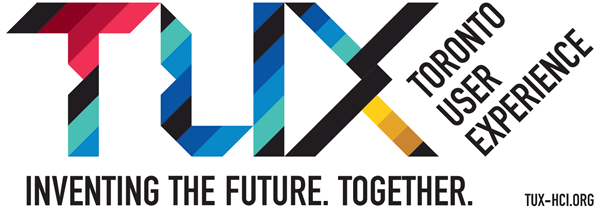Sanders Series Lecture
Speaker
Bill Buxton: Ubiety: On Design, Place and the Importance of Manners
2017-11-21 12:30 at MaRS

Abstract
It is a paradox that the better we get at producing useful, affordable, desirable, usable technologies, the more we are confronted by complexity and lack of overall satisfaction. This is partially, or even mainly, due to the demands for economies of scale. Hence, we are deluged by digital do-dads – apps, services and gadgets which on their own may be wonderful, but collectively create an overly complex ecosystem of baubles. What is missed is that the cumulative complexity of enough such baubles crosses the barrier, above which the ecosystem becomes inscrutable. Lying behind this is that things simply do not work together. In a world dominated by “social computing”, there are virtually no social relationships amongst the technologies themselves. Weiser’s label, Ubiquitous Computing, holds. But the result has little or anything to do with what he – or the rest of us on the team – envisioned or intended.
My argument is that he used the wrong word. Ubiquity, i.e, technology everywhere, all the time, etc. is no panacea. Rather, the word that fits far better is Ubiety – a closely related term, but one which has at its core the notion of place. Hence, it points towards the right technology at the right place – extended (in my usage, at least) to encompass place in the physical sense, but also time, social, cultural, temporal, absolute, relative, etc. Furthermore, if we layer the notion of mobility of human action on this framing, what emerges is an enhanced sense of the importance of transitions, and adaptation. This, by way of Piaget, leads us to perhaps a different way of thinking about intelligence – of human and machine – and how intelligent design may pave the way to wrestling the ever-growing complexity to the ground, thus enabling us, and our technologies, to meet our true and worthy potential.
Bio
Bill has been walking the path between where people and technology meet for over 40 years – as a designer, musician, lecturer, writer, teacher, critic and researcher. His focus has always been on the human, and his work reflects a particular interest in the creative disciplines. He believes that appropriate design is that which enhances human intelligence and creativity, not replaces it. As a practicing skeptimist, he is a devotee of Melvin Kranzberg’s first law: “Technology is neither good nor bad; nor is it neutral.” His corollary to this is, “Without informed design, it is more likely to lean to the bad than the good.” It is towards becoming thus informed, and enlisting others to do so as well, that both his work, and this talk, are directed.
